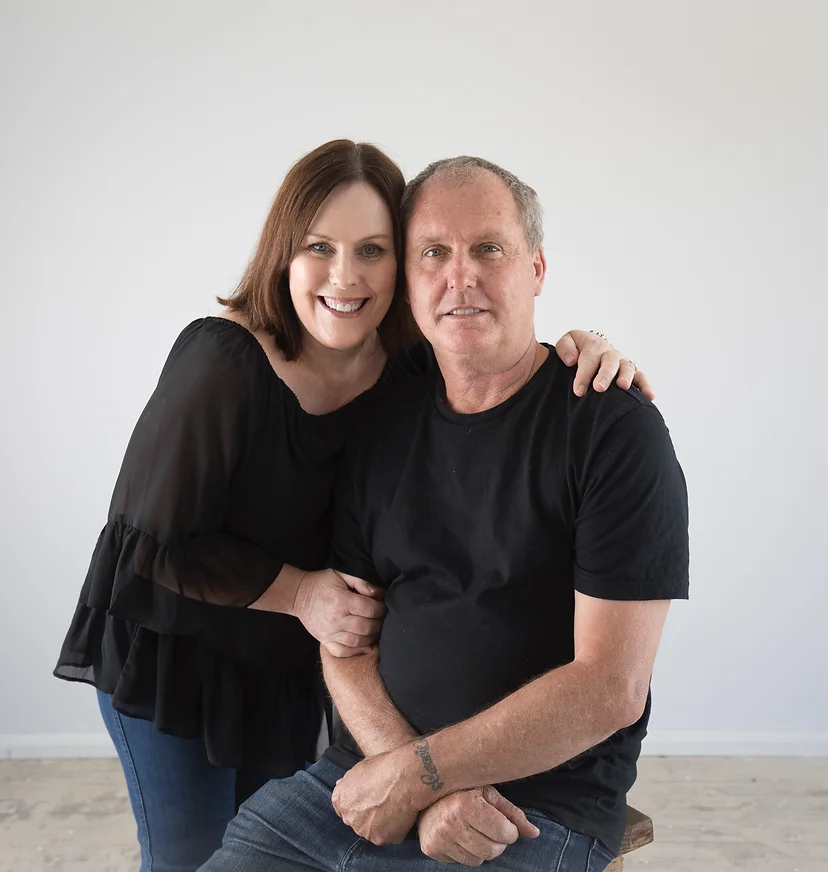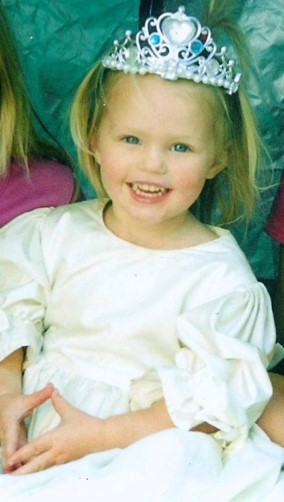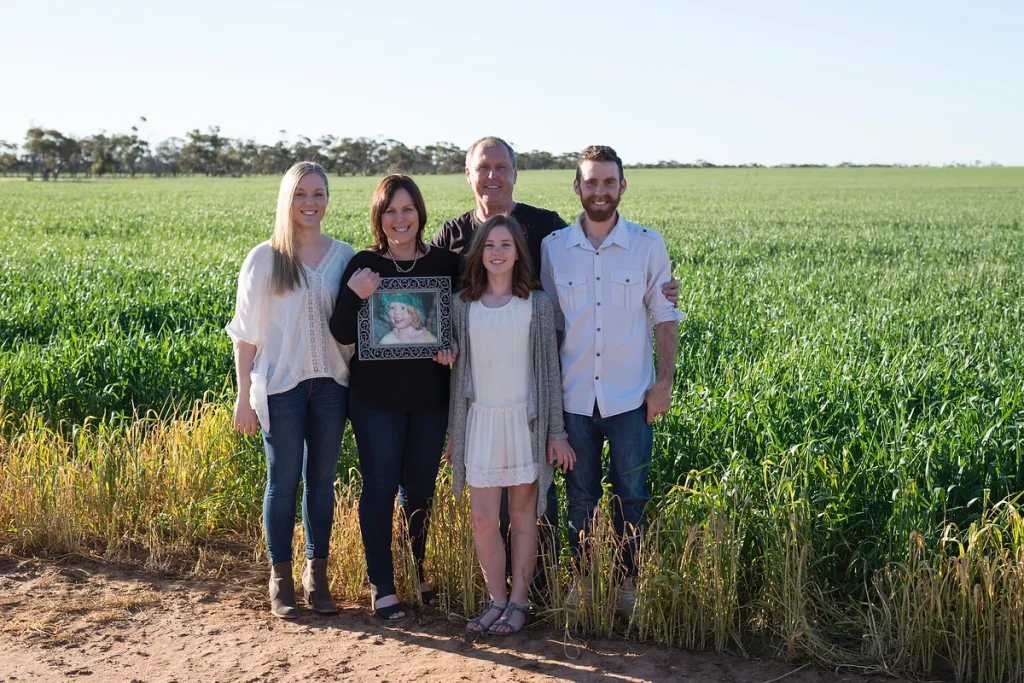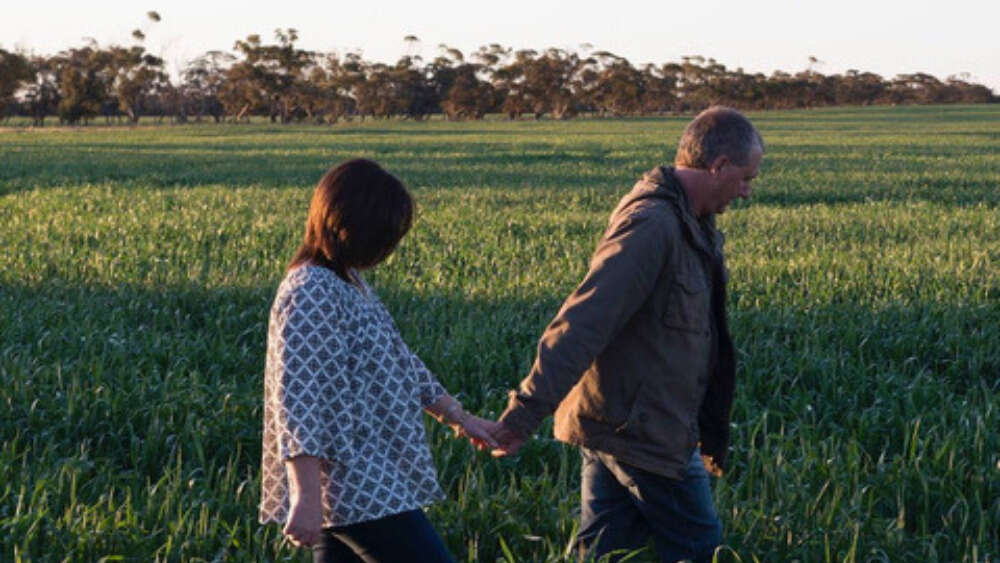Paul Ireland was standing in a paddock on his South Australian property when his pastor arrived to deliver the worst news any parent could hear. He wanted to tell Paul in person before he heard it on the radio: Paul’s beautiful, bubbly, three-year-old daughter Laura Grace had been in a tragic accident. She had died in a car fire.
As Paul and his wife Barb began to digest the horror of this tragedy, the media swooped in.
“From the very moment of the accident, we became public property,” Paul tells Eternity. “Almost immediately, we were confronted with helicopters on the property. Our driveway’s one kilometre long but that didn’t seem to stop people from deciding that they were going to drive up and knock on our door to try and get a comment.”
“From the very moment of the accident, we became public property.” – Paul Ireland
The Irelands – on a farm 200 kilometres from Adelaide, near the small town of Pinnaroo – and their local community were thrust into the spotlight.
Paul notes that their elderly neighbour, a grandmother in her eighties, also had reporters knocking on her door “almost immediately once the helicopters landed”.
“That was pretty confronting,” he says. “But the thing that really sticks in my mind was these helicopters circling. I had to pick the moment to go outside because the helicopters were circling the place. So that was a pretty challenging situation to find yourself in because we’re very private people. We tended to hold our family and our private life very close to our hearts, and we didn’t go out of our way to share that. So it was a real affront to my senses.”
“We felt like we had completely lost control of our world.” – Barb Ireland
Now, almost 20 years after Laura’s death on 14 October 2003, Barb reflects on what it’s like to lose your child through an accidental, unexpected death.
“We felt like we had completely lost control of our world. What we knew even earlier that day was no longer the case and would never be the same. It was a feeling of complete lack of control of any of our circumstances.”
Barb’s recently published book Daddy Will Carry Me, which she wrote to help others who have suffered a traumatic loss, describes the “double-edged sword” of becoming the centre of attention after the accident.
“Our house was inundated with people, the phone was going and there were media reports … If people hadn’t visited, that wouldn’t have been a good thing either. But, you know, it was overwhelming that we no longer had control over any part of our life it felt like.”
Meanwhile, in the grip of crushing grief, Paul and Barb’s faith was undergoing the greatest test.
“We found ourselves sitting in ruins,” says Paul. “Even at that early stage, we tested everything to try and get back to what we believed … Our faith was in the process of being rebuilt.”

Barb and Paul Ireland
Stories we need to hear
The only thing that really spoke to their grief at that time were the stories of other Christians who had also suffered the loss of a child.
“When we lost Laura in 2003, we had dial-up internet. We were out on the farm. We had no bookshops I could go to. I would sit up late at night looking for stories online of Christian parents who had endured the loss of a child and survived it with their marriage and with their faith intact. I just needed to gain hope from somebody else’s story,” Barb explains.
She found the connection she was looking for at a church leadership day around four weeks after Laura’s accident. The Irelands had gone somewhat reluctantly and sat at the back, feeling like “everybody was watching us”.
“It was definitely a God-ordained meeting because the guy who got up to talk that day spoke about the suicide of his son that had happened not that long ago. If anybody in that room could minister to me at that time, it was that guy,” Barb recalls.
“It was just something about that lived experience, that shared journey, that I was able to connect with that day. It was such an encouragement.”
“When you get to that point of crisis, the only thing that can cut through is something that’s real … somebody’s story.” – Barb Ireland

Laura Grace Ireland
The Irelands hope their story, shared through Barb’s book and also through Eternity, might give others hope in the same way that this man’s story encouraged them.
“At the time we lost Laura, and probably in all of the years since to a lesser degree, I kind of have a filter for the real stuff,” Barb admits. “At that time, anything fluffy wasn’t gonna do it for me. Whatever cliché people thought to say, even though the sentiment was beautiful, it just didn’t mean anything. But somebody’s story, I could connect with because that was real … When you get to that point of crisis, the only thing that can cut through is something that’s real, not something that’s clichéd or sugar-coated.”
Paul agrees that it’s important to tell stories like theirs, about grief and its impact on faith.
“It’s almost taboo in many ways to talk about child loss in particular. Even in Christian circles, people wrestle with that. It rocked my world. And until Barb’s book [was published], we shared our story very sparingly because people struggle to deal with that.
“But that was a part of Jesus’ journey,” Paul continues.”He was a ‘Man of Sorrows acquainted with grief’, so it’s a hollow gospel if we don’t embrace that. We understand that grief is a part of living in a broken world. The grief experience is a common thread that carries through not just the loss of a loved one, but the loss of a job or a broken relationship.
“So I think it’s really important that, as a people of faith, we need to be prepared to go there and to reconcile our faith with those [experiences]. If we can’t reconcile that, it’s going to be very difficult to navigate life.”
The bigger picture
The Irelands’ experience has also changed their perspective on mainstream media.
“In the subsequent years after the accident, I’ve refused to buy a newspaper. I’ve only recently got to the point where I’m interested in watching the evening news again, and I look at it through a different lens,” says Paul.
“When I see anything in mainstream media, I’m hesitant to embrace it straightaway. I think that’s a great life lesson about asking the integrity of the source. To quote Scripture, we need to go to the source, and that’s God, to give us the truth of any situation.”
Barb notes the difference in sharing their story through Eternity.
“We were allowed to mention our faith. We could talk about the goodness of God. So in that sense, we could be real.
Paul adds, “Our faith is part of who we are … so the opportunity to have someone who understands the journey of faith, I believe, was really valuable.”

Barb and Paul with their children, Jenna, Tahli, Jordan and, in a photo, Laura.
Unlike the helicopters circling their house all those years ago, Paul also highlights the difference in approach by Eternity writer Anne Lim.
“We loved talking to Anne. She had read the book and she’d invested in finding out about our story, whereas we’ve done other interviews where people haven’t necessarily taken the time to do that, and that shows.
“She wasn’t wanting to glorify the circumstances of the death. She wasn’t wanting any kind of sensational headline. She was wanting the deeper things,” adds Barb.
“I think the only reason that I’ve been brave enough to share our story is because I believe God’s asked me to, because we can see him at work through it all.
“It’s never been about the circumstances of the death. I’ve never wanted to bring any attention to them, even though it’s a hard thing to step around. But it’s because of God’s faithfulness and that’s why we tell the story.”
Make a Donation
Eternity would love your help to continue telling stories of faith like Paul and Barb Ireland’s.
Help us to keep creating free resources that tell the bigger picture – of what God is doing in Australia and across the world – by donating to our 2023 Appeal.
Every dollar goes directly to Eternity’s work and distribution.
Donate now and check out more of our top stories from 2022-23.


